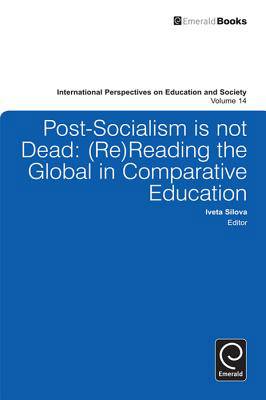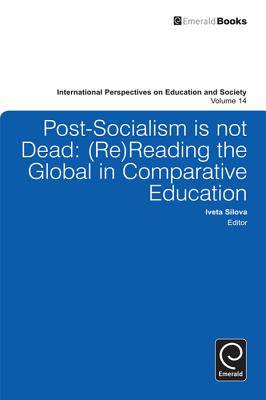
- Afhalen na 1 uur in een winkel met voorraad
- Gratis thuislevering in België vanaf € 30
- Ruim aanbod met 7 miljoen producten
- Afhalen na 1 uur in een winkel met voorraad
- Gratis thuislevering in België vanaf € 30
- Ruim aanbod met 7 miljoen producten
Zoeken
Post-Socialism Is Not Dead
Reading the Global in Comparative Education
€ 138,45
+ 276 punten
Omschrijving
The 20th anniversary of the collapse of the Soviet Union is a time to reflect and call attention to the educational transformations in post-socialist nations of Southeast/Central Europe and the former Soviet Union and in educational systems around the world. While the educational landscape changed most obviously in the former socialist countries and aligned nations, the impact of the collapse of the Soviet Union was felt in nations worldwide. This volume will provide a comparative account of the meanings and processes of post-socialist transformations in education by exploring recent theories, concepts, and debates on post-socialism and globalization in national, regional, and international contexts. Of particular interest is a critical examination of post-socialist transformations and the evolution of educational change globally since 1991. Understanding these complex developments since 1991 is critical to the study of education around the world in the new millennium.
Specificaties
Betrokkenen
- Uitgeverij:
Inhoud
- Aantal bladzijden:
- 453
- Taal:
- Engels
- Reeks:
- Reeksnummer:
- nr. 14
Eigenschappen
- Productcode (EAN):
- 9780857244178
- Verschijningsdatum:
- 13/12/2010
- Uitvoering:
- Hardcover
- Formaat:
- Genaaid
- Afmetingen:
- 157 mm x 231 mm
- Gewicht:
- 780 g

Alleen bij Standaard Boekhandel
+ 276 punten op je klantenkaart van Standaard Boekhandel
Beoordelingen
We publiceren alleen reviews die voldoen aan de voorwaarden voor reviews. Bekijk onze voorwaarden voor reviews.










